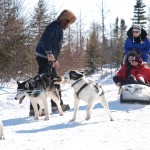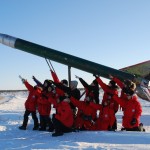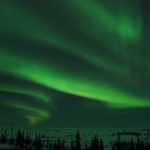LCC students Victor Zhao’13 and Andrew Hamilton’13 had the opportunity to participate in ArcticNet’s Schools on Tundra program during the March Break.
“Students and teachers participating in the Schools on Tundra program [had] the unique opportunity to conduct authentic field research in the sub-arctic, engage with scientists working out of the [Churchill Northern Studies Centre] and participate in lectures and workshops. Participants also [experienced] the diverse geology, biodiversity, cultural history, and wild beauty that the area around Churchill offers.
The program was hosted at the Churchill Northern Studies Centre (CNSC), a hive of scientific activity located outside of Churchill, MB Canada. Here, scientists are trying to increase our understanding of the changes that the sub-arctic is experiencing due to global climate change.”
______________________________________________________________________________________
March 2, 2013
Today was a very packed day in Churchill. After an early wake-up (6:30!), we continued working on our model rockets. Most people finished assembling their rockets. I’m very excited for Monday’s launch!
At about 10:30, we left for the day’s main event: dog sledding! We arrived at Blue Sky Expeditions a half hour later, eager to begin. Gerald Azure, the founder and trainer, walked us through how the sleds work. There were two sleds: one with space for one passenger, and the other with space for two. Both sleds were each pulled by a team of seven dogs. Blue Sky is unique in the way it treats its dogs; they believe strongly that the dogs shouldn’t be overworked, so each dog is “retired” into adoption at age eight. One of the dogs, who ended up being a lead dog for us, had recently been rescued from a home where she had been abused. You could see in both her timid nature and the scar above her eye that something wasn’t quite right with the dog psychologically.
On a happier note, I think that I speak for the entire group when I say that we had a great time dogsledding. It is a completely unique experience, one which I find difficult to put into words, but I will say this much: The feeling is a mix of exhilaration, empowerment and, well, surprise when the dogs first take off.
Then we went to sleep for the night. Or so we thought. Around 11 o’clock, Max (one of the teachers accompanying the trip) woke us up to take a look at the northern lights. They were by far the best I’d seen so far on this trip, and the viewing dome was completely full for the first time. He managed to get some incredible pictures of the overpowering phenomenon, and those of us who managed to get up were staring at the sky in awe for a while.
When thinking of what I was going to write for this dispatch, I thought it was almost unfair that I got a day that was so full of great activities. That’s when it hit me – it wasn’t that this day was so much better than the others, it’s that every day on this trip has been an incredible experience in and of itself. I feel privileged to be here. —Andrew Hamilton ’13



